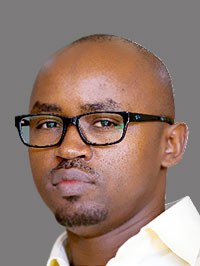It is just over a week since the year 2014 was ushered in. This year comes with added meaning for Rwanda as the county marks 20 years since the 1994 Genocide that claimed over a million Tutsis. Activities to mark the anniversary kicked off on January 7 and the pre-commemoration activities will last 90 days ending on April 7, marking the official launch of the mourning week.


It is just over a week since the year 2014 was ushered in. This year comes with added meaning for Rwanda as the county marks 20 years since the 1994 Genocide that claimed over a million Tutsis.Activities to mark the anniversary kicked off on January 7 and the pre-commemoration activities will last 90 days ending on April 7, marking the official launch of the mourning week.One of the reasons for starting commemoration activities earlier than usual that I find plausible is to prepare Rwandans and, more specifically, survivors to come to terms with the tragedy, especially as they enter into the official mourning week.Twenty years after the Genocide might seem like a long time but to the survivors and all those that lost their loved ones in the cruelest of ways, it just seems like yesterday.Trauma cases recorded amongst survivors during the commemoration period are usually at their highest. Trauma has also been reported amongst the young ones; those who even never experienced the Genocide.This period allows institutions both public and private and local communities to engage more actively in commemoration activities.This is a time to plan and reach out more tangibly to especially vulnerable Genocide survivors as they seek to rebuild their lives.Most importantly, the 90 days present an opportune moment to reflect on the Country’s checkered history with a view of learning from it for a better tomorrow. This history will have to be retold over and over again to present generations and those to come so as to carry on the memory of genocide and the victims.This is also an opportunity to remember and honour the victims. To survivors remembering gives the victims a new form, they are brought back to life, and it is a reason why they (survivors) are living; to keep the memory.Over the 90 days, a flame; the Kwibuka Flame will traverse all the 30 districts of the country. Organisers say that all memorial fires throughout the country will stem from this single Kwibuka Flame. The flame symbolises remembrance resilience and courage of Rwandans that have seen them overcome seemingly insurmountable challenges over the past twenty years."The body of Rwanda was tortured, was assaulted, the body succumbed but the spirit never did,” President Paul Kagame has previously said.It is this spirit that has seen Rwanda achieve the unimaginable in a short spell of time. The country and its people have drawn inspiration from their rich tradition to build a strong, peaceful and united country fit for all to live in and prosper.The country has become a champion of peace on the continent by contributing troops to peace keeping missions. Its homegrown solutions have inspired many and have been emulated by different countries.Twenty years later, this is an opportunity to look forward with great optimism. Living in a country built on a foundation of national unity, security, democracy, economic prosperity, Rwandans have a launch pad from where to achieve their dreams no matter their station in life.As usual Genocide deniers will report for their tour of duty during this commemoration period; however, their venomous campaigns should not be distraction anymore, Rwandans have learnt the hard way; such campaigns should inspire them more than ever to guard the memory of Genocide.As Rwandans sit around the fires, this is the time to reflect on what it means to be Rwandan. It is the Rwandan Spirit that has seen the country rise from ashes; it is this same spirit that will inspire a peaceful and prosperous country for posterity.This year should be about uniting in memory and working for a better future for all Rwandans.


